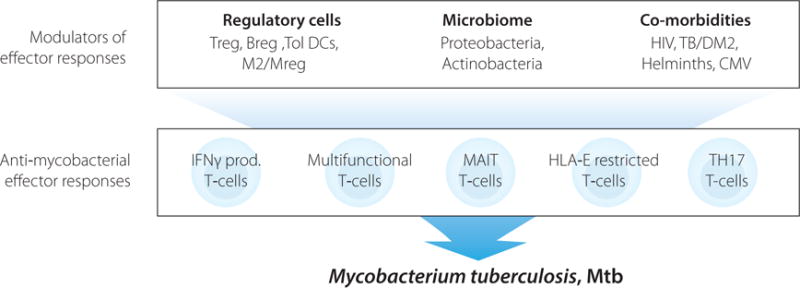Fig. 1.

Anti-mycobacterial effector responses with protective functions in human TB involve both innate and adaptive immune cells capable of producing Th1 effector cytokines as well as cytolytic and antimicrobial effector molecules such as perforin and granulysin that could contribute to Mtb killing and disease control. Modulation of these effector responses by regulatory cells, the host microbiome and associated comorbidities could impair TB control and promote disease progression.
